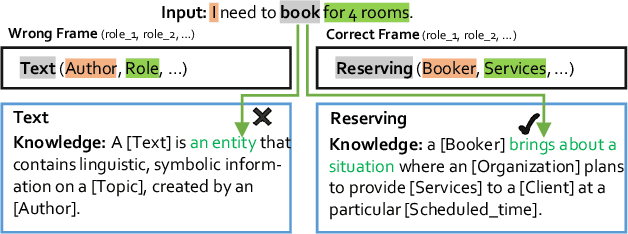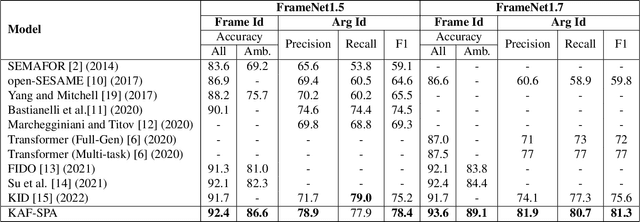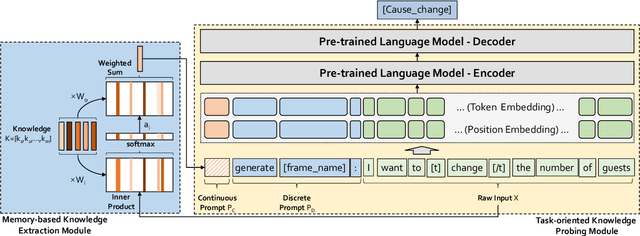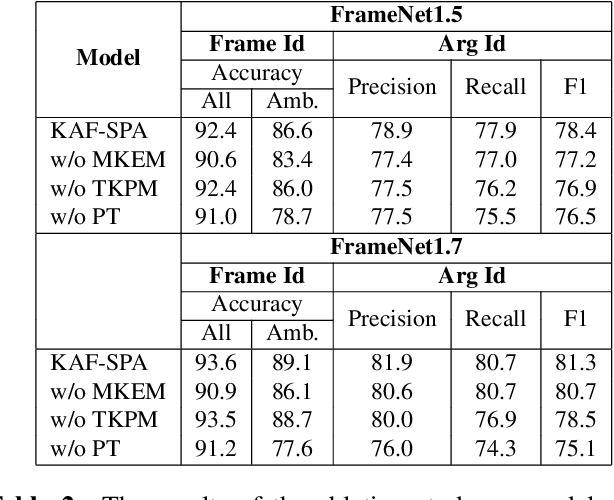Knowledge-augmented Frame Semantic Parsing with Hybrid Prompt-tuning
Paper and Code
Mar 25, 2023



Frame semantics-based approaches have been widely used in semantic parsing tasks and have become mainstream. It remains challenging to disambiguate frame representations evoked by target lexical units under different contexts. Pre-trained Language Models (PLMs) have been used in semantic parsing and significantly improve the accuracy of neural parsers. However, the PLMs-based approaches tend to favor collocated patterns presented in the training data, leading to inaccurate outcomes. The intuition here is to design a mechanism to optimally use knowledge captured in semantic frames in conjunction with PLMs to disambiguate frames. We propose a novel Knowledge-Augmented Frame Semantic Parsing Architecture (KAF-SPA) to enhance semantic representation by incorporating accurate frame knowledge into PLMs during frame semantic parsing. Specifically, a Memory-based Knowledge Extraction Module (MKEM) is devised to select accurate frame knowledge and construct the continuous templates in the high dimensional vector space. Moreover, we design a Task-oriented Knowledge Probing Module (TKPM) using hybrid prompts (in terms of continuous and discrete prompts) to incorporate the selected knowledge into the PLMs and adapt PLMs to the tasks of frame and argument identification. Experimental results on two public FrameNet datasets demonstrate that our method significantly outperforms strong baselines (by more than +3$\%$ in F1), achieving state-of-art results on the current benchmark. Ablation studies verify the effectiveness of KAF-SPA.
 Add to Chrome
Add to Chrome Add to Firefox
Add to Firefox Add to Edge
Add to Edge